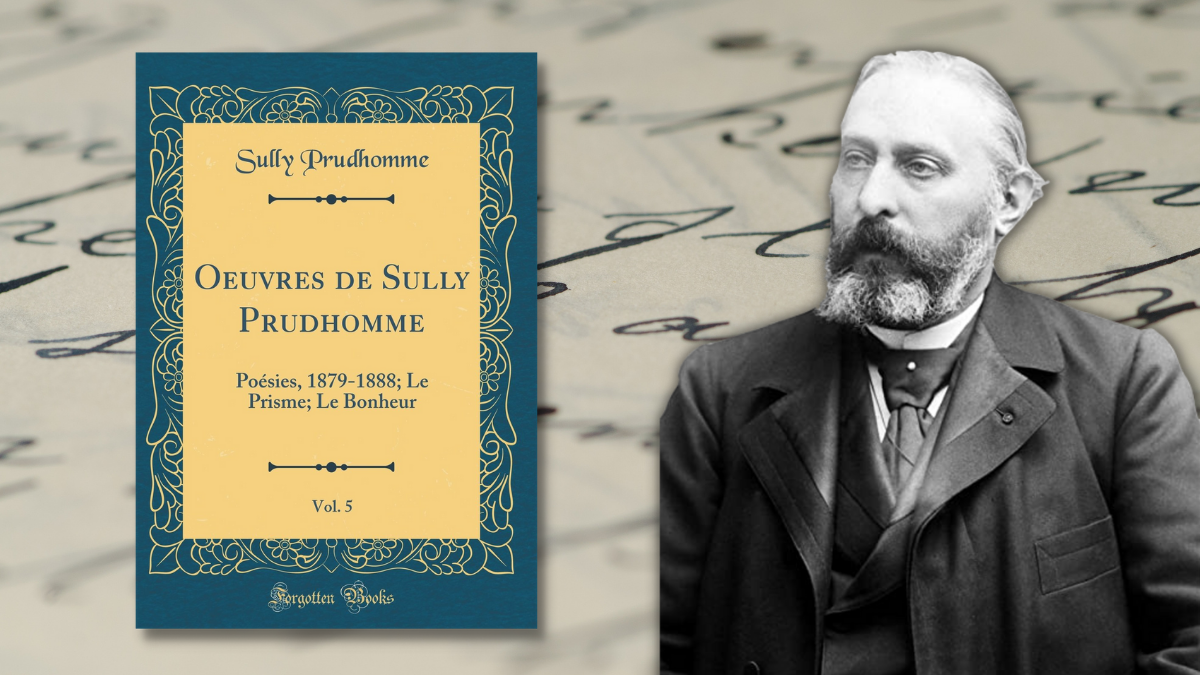First person to win the Nobel Prize for Literature: Who is Sully Prudhomme?
Although he received a science-based education, he could not work in this field due to his eye disease. After working as a factory clerk for a while, he quit his job in 1860 to study law. After a disappointing love affair, he began to write poetry.

He published these first poems, which had a sad tone, for the first time in 1865. His major books during this period are Stances et Poems (1865; Continents and Poems), Les Epreuves (1866; The Trials), and Les Solitudes (1869; The Solitudes), including his most famous poem, "Le vase brise" (The Broken Vase).
Later, Prudhomme moved away from personal lyricism and adopted the objective attitude of the Parnasians, and began to include philosophical views in his poems.
La Justice (1878; Justice) and Le Bonheur (1888; Happiness), which is about a Faustian search for knowledge and love, are the most famous of these works.
René François Armand "Sully" Prudhomme (16 March 1839 – 6 September 1907) was a French poet and essayist. He was the first winner of the Nobel Prize in Literature in 1901. Born in Paris, Prudhomme originally studied to be an engineer, but turned to philosophy and later to poetry; he declared it as his intention to create scientific poetry for modern times. In character sincere and melancholic, he was linked to the Parnassus school, although, at the same time, his work displays characteristics of its own.
Prudhomme's later works are at times obscure; It can be said that some of them take a naive approach to the problem of dealing with philosophical issues in poetry.
Prudhomme, who was elected a member of the Academie Française in 1881, received the first Nobel Prize in literature in 1901.
The award was given for the depth, inner sensibility, and literary contributions of his poems. Prudhomme continued his influence after his death and continued to be remembered as one of the important figures of French literature.
What Was His Literary Personality Like?
Sully Prudhomme is known as a poet who carries the characteristics of the symbolist movement with his literary personality. Here are some key traits that shaped Prudhomme's literary personality:
Emotional Intensity: Prudhomme was a poet who placed great emphasis on expressing the depth and intensity of emotional experiences in his poems. He used a language that reflects emotional depth while dealing with universal themes such as love, melancholy, death, and existence. He used metaphors, images, and symbols to make the emotional intensity felt in his poems.
Symbolist Approach: Prudhomme was a representative of the symbolist literary movement. Symbolists focus on the spiritual and imaginary world beyond reality, highlighting the subconscious, dreams, and symbols. Prudhomme also aims to activate the inner worlds of the readers by including symbolic language and imagery in his poems.
Elegant Language: Prudhomme's poems draw attention with their elegant use of language. Having developed a unique poetic style, Prudhomme succeeds in creating an emotional effect with the sound, rhythm, and word choice of the language. The elegance of his poems leaves an emotional impact on the readers, while at the same time providing aesthetic satisfaction.
Introversion and Melancholy: Introversion and melancholy are prominent themes in Prudhomme's poems. It deals with sadness, loneliness, and existential questions while concentrating on his inner world and emotional experiences. This melancholic tone can evoke deep emotional reactions in the reader.
Philosophical and Intellectual Side: Prudhomme does not only focus on emotional experiences in his poems but also deals with philosophical and intellectual issues. He writes essays and poems discussing issues such as justice, morality, consciousness, and existence. In this way, he enriches his literature with a philosophical depth.
